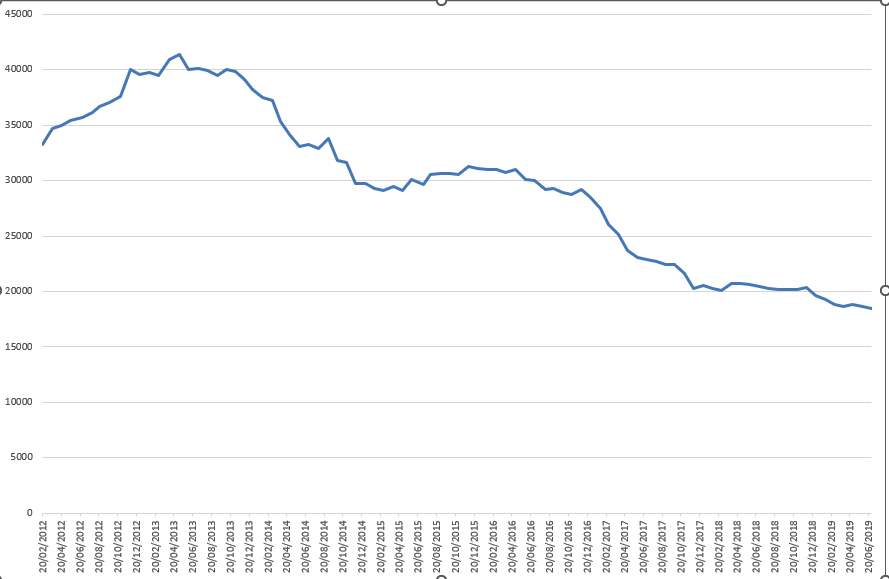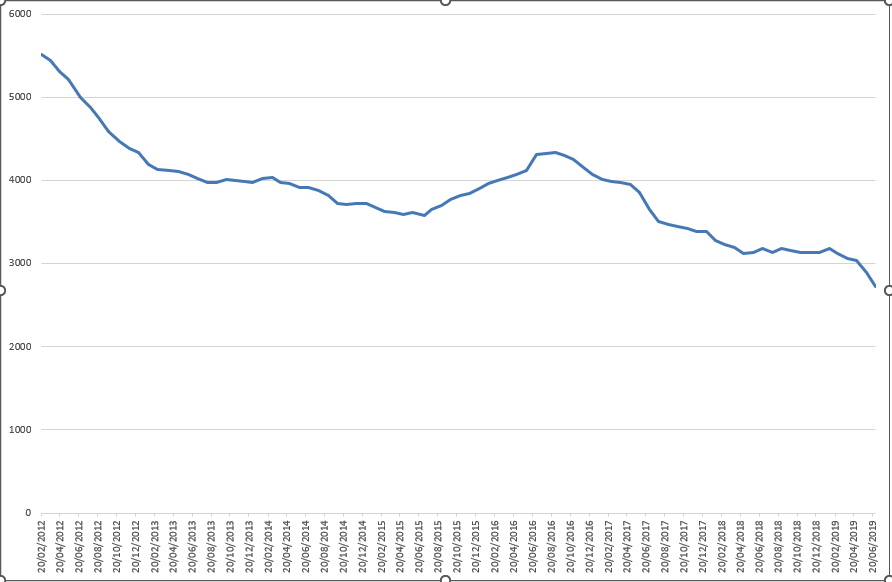I tried to post this yesterday but had problems doing it on my phone. In essence this is a demonstration of what can be done to reduce energy consumption and bills.
I kept records of monthly energy from our old house in Scotland from the time we moved in to when we moved out. This was a large stone-built Victorian house which didn’t have much in the way of energy efficiency other than some aluminium framed double glazing.
This was the gas consumption as an annual rolling average between 2012 and 2019. As we moved in during the Spring we didn’t see the full effect at first but the annual consumption was up to 41,000 KWh/year. This was reduced to 18,500.
This is a similar one for electric which went from 5,500 KWh/year to 2,700. I started permanently working from home which accounts for the increase in 2015.
During this period we switched from gas to electric cooking and the shower went from electric to gas.
From memory, the following were used to reduce gas consumption:
- Energy efficient shower head.
- Roof insulation (initially some rockwool where it could be accessed and then all over when we had to have the roof replaced/repaired.
- Smart radiator thermostats
- Replacement double glazing
Had we remained there, I would have been able to install under-floor insulation and a more energy efficient boiler, both of which would have reduced the gas by 10% each.
The electric was reduce with the following:
- All lighting replaced with LED (it was previously incandescent or halogen bulbs).
- Replaced CRT TVs with LCD flat panels.
- Replaced Washer, Dryer, Dishwasher with A+++ rated appliances.
- The oven and stove where new but I went for an induction hob and A++ rated oven.
- Timer switches on the kids electric crap (more of a bedtime thing but the buggers would leave things plugged in.
- Also I received more efficient computer and comms equipment from work (by chance - they honestly didn’t care).
The point with all this is that none of these changes involved significant lifestyle changes - in fact some of it was a distinct improvement. However, all these things cost money and if someone is broke they won’t have the cash to make the upfront investment - it’s the classic poverty trap.
There are some things that the government could do that are relatively cheap and could be done quickly. The bulbs, shower head and heating controls are relatively cheap. Other things are more expensive but standard economic instruments could help - e.g. reducing VAT on energy efficient appliances or increasing it on those that aren’t.
My feeling is that these programmes need to be organised by government - preferably local government. The market driven model doesn’t work for this. The Green Deal was been an absolute disaster and the country is now paying the price for it.

